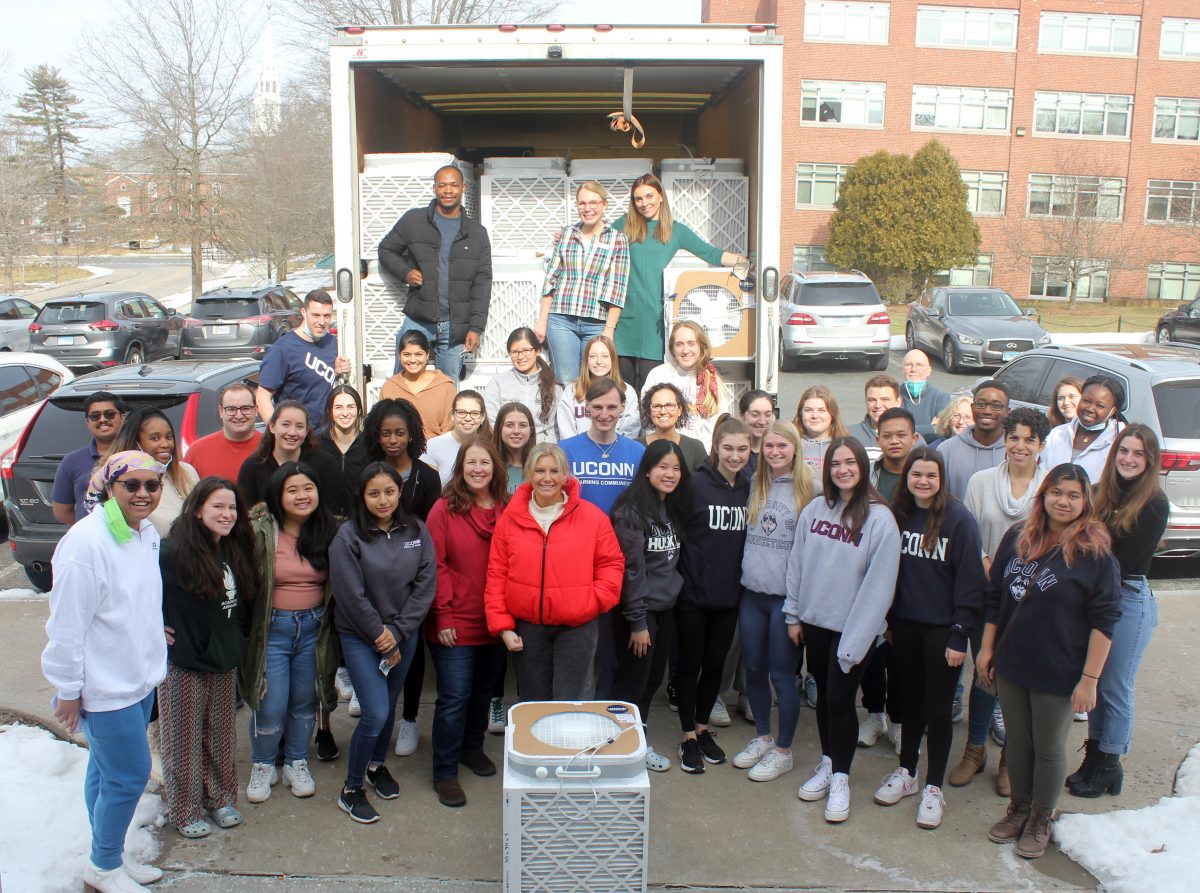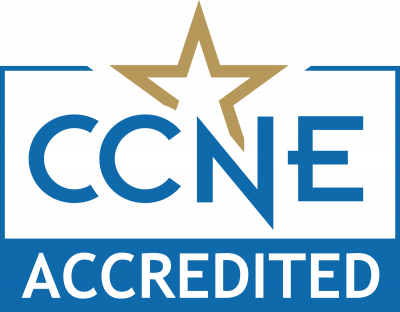
Covid-19 transmits more easily in overcrowded and poorly ventilated places. To address this, the School of Nursing has united with UConn Health and other groups in the UConn community to create the Indoor Air Quality Initiative, building inexpensive do-it-yourself air purifiers as part of a project to improve community health in local elementary schools, homeless shelters, and beyond.
The new initiative was spearheaded by School of Nursing alumna and neuroimmunology nurse practitioner Marina A. Creed ’17 MS, APRN, FNP-BC, MSCN, who works at UConn Health’s Multiple Sclerosis Center, and her friend and colleague Sarah Laskowski of The Jackson Laboratory. It brings together the schools of Nursing, Engineering, and Medicine; the Department of Public Health Sciences; and the Connecticut Area Health Education Center Network in a multipronged, community-involved approach to mitigate the risk of Covid-19.
Among other strategies, the initiative is building and distributing the “Corsi-Rosenthal Box” to help stop the spread of Covid-19 and other viruses such as influenza. The boxes remove 90% of virus-carrying aerosols from the air and are also effective against dust and allergens. With just about 30 minutes of an assembler’s time and $60 worth of supplies including a box fan, high-quality air filters, cardboard, and duct tape, these devices drastically reduce Covid-carrying aerosols, providing comparable filtration capabilities to professionally manufactured portable HEPA filters.
“As mask mandates are removed, this type of air filtration will become increasingly more important,” says School of Nursing Dean Deborah Chyun, Ph.D., RN, FAHA, FAAN.
The air purifier is named after its inventors, Richard Corsi and Jim Rosenthal, who created it in August 2020. Corsi is an environmental engineer and the dean of engineering at the University of California, Davis; Rosenthal is the chairman and CEO of Tex-Air Filters.
“Cleaner air will protect educators, students, and families,” Creed says. “This DIY portable air cleaner is a low-cost, evidence-based intervention that immediately improves indoor air quality.” She is concerned about her patients who are educators, paraprofessionals, and parents, and both she and Laskowski have children in public schools. “My hope is that we can help make schools one of the safest places in the community, and by extension, better protect my patients, many of whom are immunocompromised.”
After contacting several school districts for the first 100-unit pilot program in December 2021, West Hartford Public Schools volunteered to deploy the units to their cafeterias. The next 100 units in the pilot program were built by undergraduate engineering students as part of their Foundations of Engineering class and were deployed in February to Coventry Public Schools, where they were utilized in cafeterias, classrooms, and other public spaces throughout the district.
In March, Creed and School of Nursing associate clinical professor Michelle Cole, DNP, MSN, RN, CPN, hosted a box-a-thon at Storrs Hall. Dozens of nursing students, as well as some from other UConn departments, spent a few hours on a Saturday building 100 of the do-it-yourself air purifiers, which were also delivered to Coventry Public Schools.
The boxes, which use about the same amount of electricity as a single lightbulb, can be an affordable intervention to improve air quality in almost any space in any school. Each box can last up to six months before the air filters need to be replaced.
“This is a nurse-led initiative that came from the point of patient care,” says former School of Nursing Associate Dean for Academic Affairs Angela Starkweather, Ph.D., ACNP-BC, FAANP, FAAN. “This is about the whole connection we have with the community. An infection could spread from the patient setting to the community, and vice versa.” Mitigating that risk using these inexpensive air filters protects children, vulnerable patients, and the broader community, Starkweather says.
“This is interventional public health in action,” says Jaime Imitola, MD, director of the UConn Health MS Center. “It is impressive what the UConn community can do to rally toward a worthy cause.”
This article was originally published in the Fall 2022 issue of Unison.

